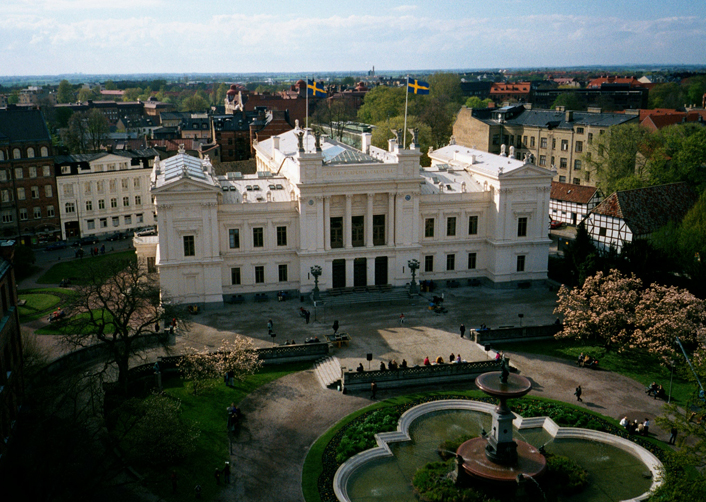Lund University was founded in 1666 and is repeatedly ranked among the world’s top 100 universities. The University has around 44 000 students and more than 8 000 staff based in Lund, Helsingborg and Malmö. We are united in our efforts to understand, explain and improve our world and the human condition.
Lund University welcomes applicants with diverse backgrounds and experiences. We regard gender equality and diversity as a strength and an asset.
Subject description
The research area includes different methods for measurement of protein levels in biological samples using advanced mass spectrometry, and specifically informatic methods for processing and analysis of the data generated from such experiments. The goal of the research project is to develop new informatic workflows to enhance sensitivity and reliability of the data analysis, and in combination with experimental developments, enable analysis of the levels of thousands of proteins in parallel (proteomes) in minute samples down to single cells. The developed methods can be applied in different medical settings to find biomarkers for disease states. The project involves possibilities to test and develop new innovative solutions for data analysis, including different forms of machine learning.
Work duties
The work within the research project includes analysis of data using existing informatic solutions as well as assessment and further development of algorithms and bioinformatic workflows. The project can also include collaborations with experimentalists within proteomics experiments to answer different biological questions, and integrated analysis of large-scale biological data from different analytical platforms.
The main duties of doctoral students are to devote themselves to their research studies which includes participating in research projects and third cycle courses. The work duties will also include teaching and other departmental duties (no more than 20%).
Admission requirements
A person meets the general admission requirements for third-cycle courses and study programmes if the applicant:
- has been awarded a second-cycle qualification, or
- has satisfied the requirements for courses comprising at least 240 credits of which at least 60 credits were awarded in the second cycle, or
- has acquired substantially equivalent knowledge in some other way in Sweden or abroad.
A person meets the specific admission requirements for third cycle studies in Immunotechnology if the applicant has:
- at least 240 credits of relevance to the subject area, of which at least 60 credits from the second cycle and a specialised project of at least 30 second-cycle credits of relevance to the subject or the equivalent, or
- an MSc in engineering or another relevant degree at the same level
Additional requirements:
- Very good oral and written proficiency in English.
- Very goda programming knowledge.
Assessment criteria
Selection for third-cycle studies is based on the student’s potential to profit from such studies. The assessment of potential is made primarily on the basis of academic results from the first and second cycle. Special attention is paid to the following:
- Knowledge and skills relevant to the thesis project and the subject of study.
- An assessment of ability to work independently and to formulate and tackle research problems.
- Written and oral communication skills.
- Other experience relevant to the third-cycle studies, e.g. professional experience.
Other assessment criteria:
- Experience from work with large-scale biological data from omics experiments.
- Experience in mass spectrometry.
- Knowledge within biostatistics.
Consideration will also be given to good collaborative skills, drive and independence, and how the applicant, through the applicants experience and skills, is deemed to have the abilities necessary for successfully completing the third cycle programme.
Terms of employment
Only those admitted to third cycle studies may be appointed to a doctoral studentship. Third cycle studies at LTH consist of full-time studies for 4 years. A doctoral studentship is a fixed-term employment of a maximum of 5 years (including 20% departmental duties). Doctoral studentships are regulated in the Higher Education Ordinance (1993:100), chapter 5, 1-7 §§.
Instructions on how to apply
Applications shall be written in English and include a cover letter stating the reasons why you are interested in the position and in what way the research project corresponds to your interests and educational background. The application must also contain a CV, degree certificate or equivalent, and other documents you wish to be considered (grade transcripts, contact information for your references, letters of recommendation, etc.).
| Type of employment | Temporary position longer than 6 months |
|---|---|
| First day of employment | As soon as possible according to agreement |
| Salary | Monthly salary |
| Number of positions | 1 |
| Working hours | 100% |
| City | Lund |
| County | Skåne län |
| Country | Sweden |
| Reference number | PA2021/4103 |
| Contact |
|
| Union representative |
|
| Published | 16.Dec.2021 |
| Last application date | 17.Jan.2022 11:59 PM CET |
